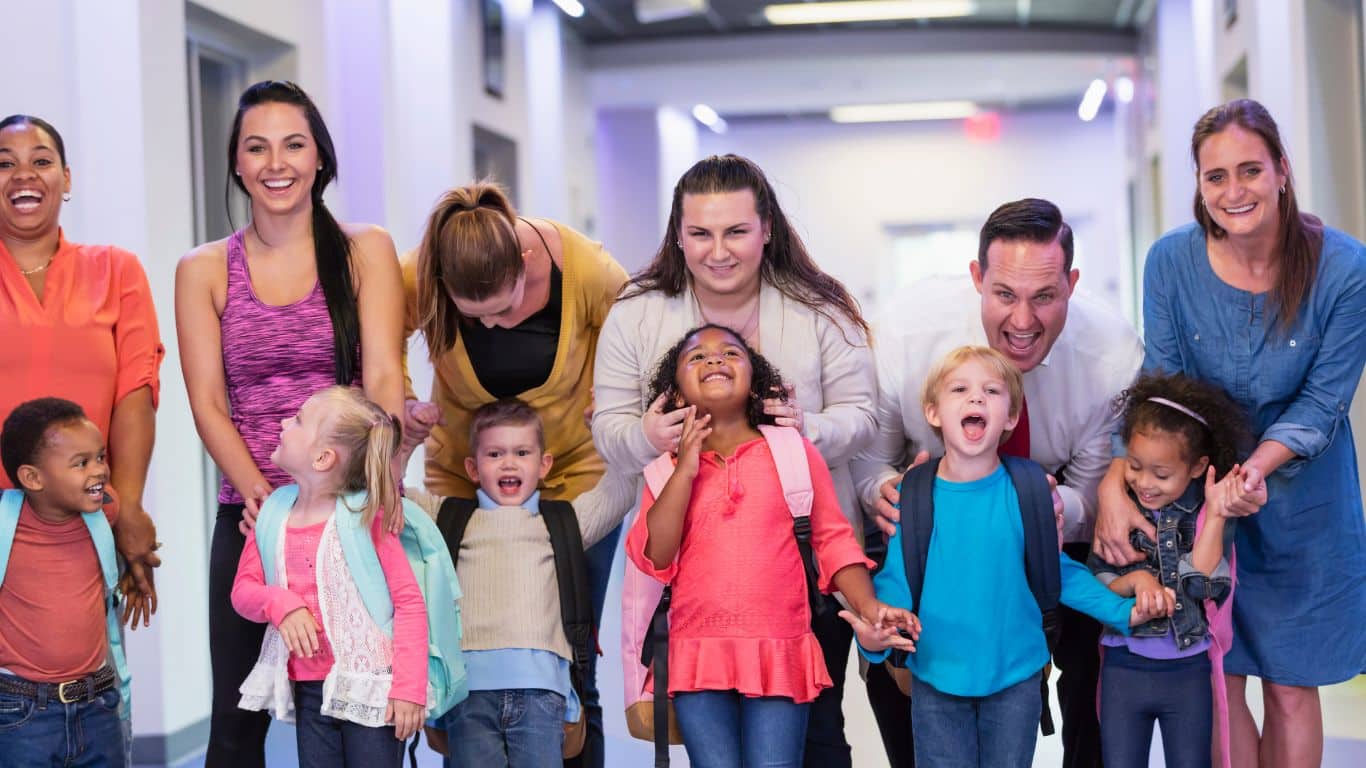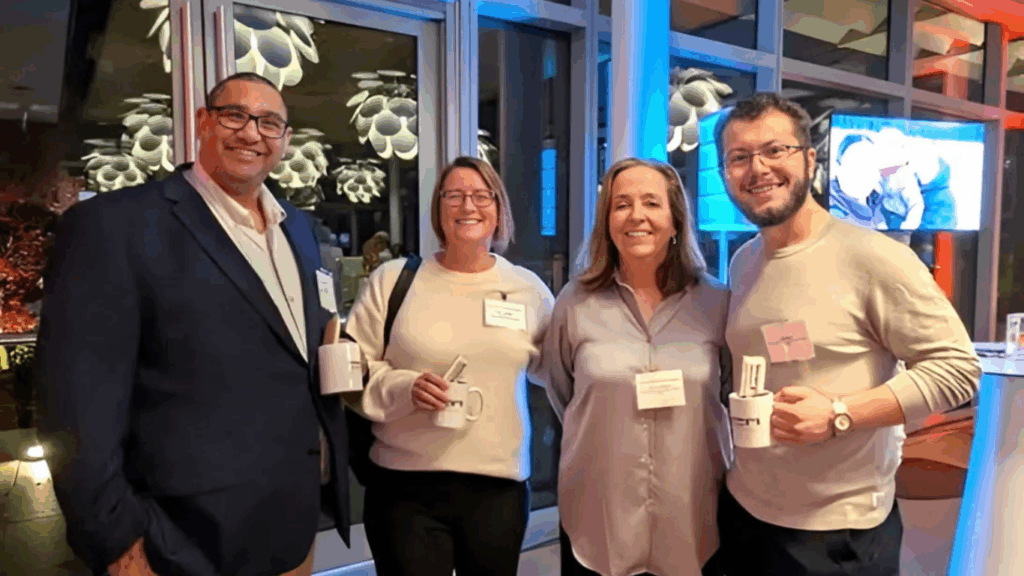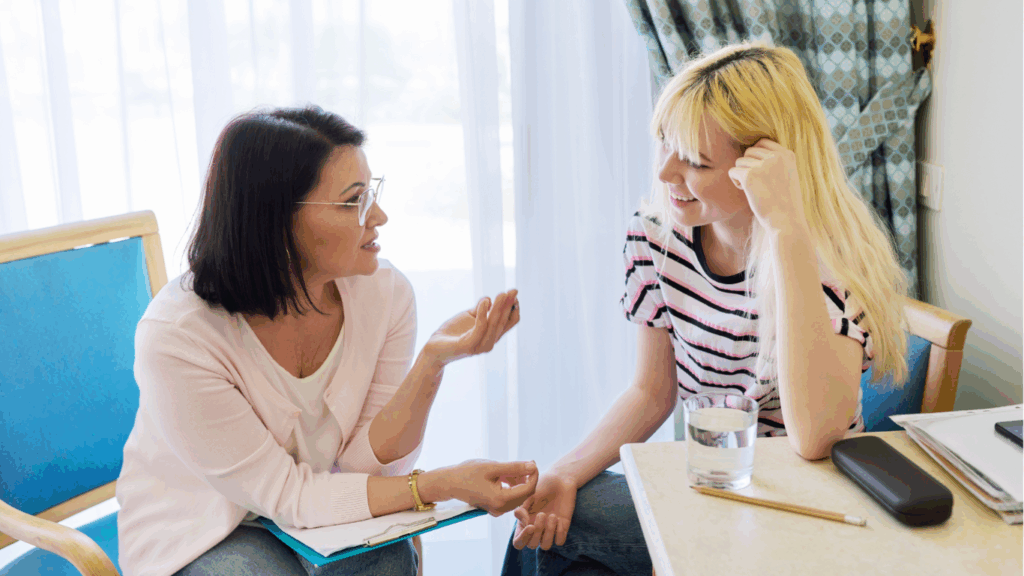I was presenting at a workshop recently and mentioned, in an off-hand way, that I wondered what surprises we would find with our next adoption. A woman in the front row shot up her hand (front row people are like that). “What do you mean your next adoption? You already have nine children. Why would you want more?”
I hadn’t expected that question, since most of the audience was adoptive parents (I later found out she was a social worker). Not being a person of ready retorts, I gave her the only answer that came to mind. “Because I’ve never liked the number nine. It’s like dark purple in the crayon box. It holds no attraction for me.”
We actually have other reasons for increasing our family but, for anyone who has to ask that question, any other answer would have had just as little meaning.
Then another arm shot up into the air. This time from a woman in the middle section (a group I will never understand — front rows because one is a keener, or because one knows more than the presenter and wants to show off, or because one has bad hearing. Back rows because one is shy, or bored with the topic but had to attend anyway, or tired because either the baby or the teen is keeping the parents up all night. But the middle?). “What kind of surprises do you anticipate? You’ve adopted children who have fetal alcohol syndrome, attachment disorder, conduct disorder, and bi-polar disorder. What kind of things could surprise you?”
“It isn’t the children who bring the surprises to an adoption,” I replied. “It’s the parents.” And that’s the truth.
I continued, “None of my children have ever really surprised me. They all act like children. Some of them act like children who have attachment issues, a few of them act like children who have fetal alcohol syndrome, a couple act like children who have emotional challenges, others act like children who live in daily fear that they will get a substitute teacher who will ask them to read in front of the class. They act like children who like soccer. They act like children who adore Santa Claus. One acts like a young teen girl who thinks the right amount of eye make-up will solve all of her social problems; another acts like a wannabe rock star. But, none of them do anything that isn’t typical of a child who has had their life. I am the surprise. I never know who, or what, I will become with each new child.
“But you’re already supposed to be what the child needs. That’s why you get approved to adopt children in the first place.” I bet you can guess who said that. She didn’t even put her hand up.
“Well, most of us adoptive parents start out with some parenting skills. Generally, we learn a whole lot more along the way. But we can only be taught things that are common to most children who have fetal alcohol syndrome, or have attention deficit, or have unresolved abuse issues. We can’t be taught what these things will be like in our child. And, most importantly, no one can teach us how we will respond to those behaviours.”
Another arm went up, again from the middle section. This time from a friendly, attentive-looking older man. I always like the friendly and attentive-looking types. I pretend that they wear such an expression because I am a fascinating presenter.
“So, why do we have to change? I thought if a child was acting out and creating problems for himself and others, we had to help them change their behaviours so that they can have more effective and happy lives.” He stopped and I stalled. So far, this middle section group was coming off as pretty bright, and I wanted to give an answer that sounded like it had some thought behind it. After all, this whole discussion had all started from my off-hand comment, not from any of my planned presentation.
“And,” a man from one seat over and two rows back jumped in, “even when they don’t have really off-the-wall problems, they need help adjusting. Older children, or even babies who’ve lived in a couple of foster homes, need help learning to live in a family, learning to belong to someone. The children do the learning, the parents do the teaching. Shouldn’t we have a pretty good idea of who and what we are as parents before we begin such an important task?” This middle group was starting to impress, even intimidate, me.
“Of course,” I replied. I was beginning to formulate an answer. That’s the best part of good questions: they lead to good answers. “We, as parents, are supposed to know something about ourselves before we begin to raise children. But, I have no way of anticipating what changes the child will create in me in order to turn me into the parent she or he needs. So, the surprises unfold over the months after placement when the child begins to let me know his needs, his fears, and his joys, and I begin to transform into the mom who can respond to all of those in the way he needs me to respond.”
No hands shot up from anywhere. I knew what that meant: I had said something confusing. So, I picked it up again. “You see, whatever I have learned about how to be a mom from my other children won’t be very useful to my new children. It’s like learning a language. If I go to Athens and learn to speak Greek, it won’t do me any good when I go to Paris and have to speak French. The way I have learned to respond to the fears and joys of my current children, won’t be the way my new children need me to respond. Each child has his own language of pain and of happiness. I will have to learn what my new child is telling me, and then begin to change accordingly.”
“Isn’t that hard on you emotionally?” Finally, some one from the back row.
“It is very painful during the transformation stage,” I answered. “I know that emotionally I will be twisted and turned and tied up and undone and remade. I know that in this process, I will be surprised to discover in myself new depths of anger and new levels of pettiness. And I will also be surprised to discover how much greater my capacity for love is, and I will be in awe at how my new child leads me along so many new pathways of joy and delight. And a year after the placement, I will look back and be surprised that I managed to get through life prior to having this child. And, I will be surprised at how much I will have learned about myself, my partner, my other children, my family and friends; and I will be surprised at how much I needed to change.”
Once again, a hand from the back row — clearly, I had underestimated the attention span of this group. “Let me see if I understand you. You’re saying that the child will go through some pretty predictable adjustments, but you’ll turn into someone new?”
Well, this back row representative wasn’t quite as smart as the other. Or, maybe I had not made myself clear. “No, I won’t be someone new,” I answered, slowly. “But I will become a much improved version of the current me.”
I could see from their facial expressions that many in the audience saw this as a move in the right direction. And, it was time to get back to my presentation. I don’t like getting pushed to new areas of thought in front of audiences, but then, like the children I raise, the audiences also help me to transform and become better.
Dr. Brenda McCreight is a consultant and trainer on issues relating to children-in-care, adoption, and special needs. She is the parent of nine children, seven of whom were considered “older” and “special needs” at the time of adoption, as well as a grandmother of two.





